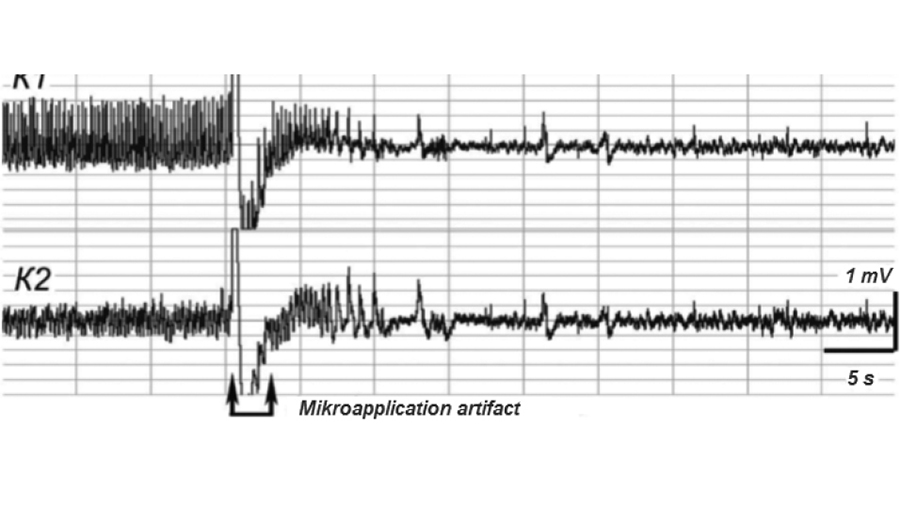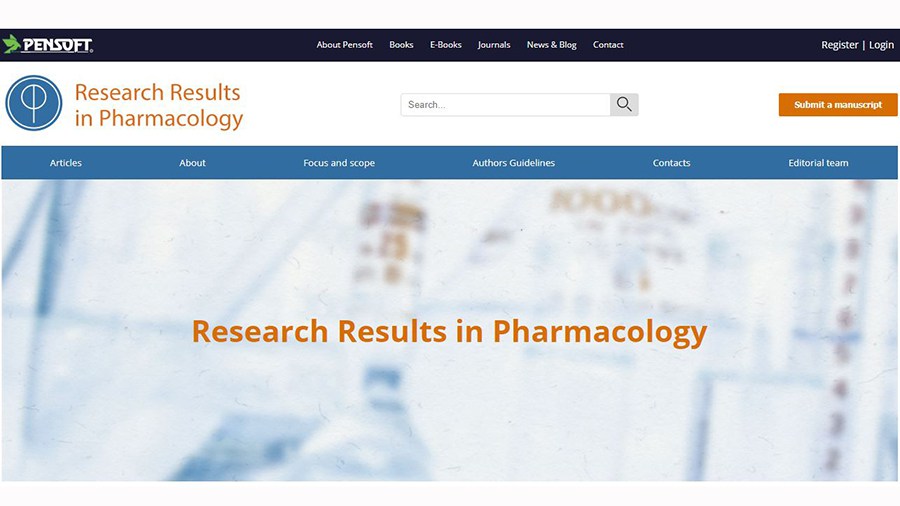The established Pharmacia demonstrates a complete makeover in its new issue after signing with scientific publisher and technology provider Pensoft and its signature open-access platform
Launched by the Bulgarian Pharmaceutical Scientific Society in 1954, the open-access, peer-reviewed Pharmacia has been available online as full text since 2007. As of 2019, the journal moves to the fast-expanding portfolio of scholarly publisher and technology provider Pensoft. The journal’s 2019 inaugural issue and the first since the realisation of the new partnership is already live on the journal’s new website.

Thanks to the Pensoft’s signature open-access scholarly publishing platform ARPHA, Pharmacia demonstrates a complete makeover, including a modern and user-friendly interface in addition to a long list of high-tech perks, meant to ensure that published articles are easy to discover, access, cite and reuse by both humans and machines all over the world.
Furthermore, all users of the journal’s system: authors, editors and reviewers alike, are to greatly benefit of ARPHA’s integrated approach to the publication process. This means that once submitted each manuscript goes through the whole cycle: from review and copy/layout editing to publication, dissemination and archiving without leaving ARPHA’s collaboration-focused online environment.
One of the interesting features now available in Pharmacia is the article-level metrics available thanks to the partnership between ARPHA and the revolutionary discovery and analytics tools Dimensions and Altmetric. By searching through millions of research articles, grant applications, clinical trials, as well as policy documents, news stories, blogs and social media posts, they allow for each article’s references and citations in both the academic and the public sphere to be monitored in real time.
Continuing its tradition, the journal welcomes original research and review articles, preliminary and short communications (notes) on a wide range of topics within the pharmaceutical and related sciences. In addition, the journal also publishes conference reports, biographies and book reviews. Articles in Pharmacia are published in English and subjected to single-blind peer review.
Pharmacia‘s Editor-in-Chief Prof Plamen Peikov, comments:
“We have been looking forward to our collaboration with Pensoft and ARPHA, as it is certainly going to not only help modernise Pharmacia on the outside, but also make it more appealing to our authors and readers by building on the journal’s accessibility and global outreach. I believe that this nice step forward is already clearly evident in Pharmacia‘s latest issue.”
ARPHA’s and Pensoft’s founder and CEO Prof Lyubomir Penev says:
“I’m delighted to see this particular journal joining the Pensoft’s and ARPHA’s family,” says ARPHA’s and Pensoft’s founder and CEO Prof. Lyubomir Penev. “With our strong background in scholarly publishing, technology development and open science practices, I am certain that we are able to provide the right venue for a high-quality and enterprising journal like Pharmacia.”
What’s on in the new issue?
The creeping cinquefoil – a perennial plant from the Northern hemisphere – has its status as a traditional medicine for treating diarrhoea, haemorrhoids and bleeding gums confirmed in a collaborative ethnobotanical study by researchers at the Bulgarian Academy of Sciences and the Medical University of Sofia (Bulgaria). Further, the team, led by Irena Mincheva, seek to explore the suggested use of the plant against mastitis: a relatively common disease and a major cause for milk reduction in both people and dairy cows.
Another paper, authored by Dr Illya Podolsky and Sergiy Shtrygol from the National University of Pharmacy in Ukraine, adds new information about “the pharmacological nature” of a molecule already known as a promising antidepressant with a unique spectrum of additional properties. By conducting an experiment in rats, using the preferred Morris water maze assessment method, the scientists study the effects of Atristamine on spatial memory and learning.

###
Pharmacia is indexed by Scopus, Altmetric, Biotechnobase, CAplusSM/Chemical Abstracts, CNKI, CrossRef, Dimensions, EBSCOhost, Embase, ExtraMED, Google Scholar, J-Gate, MEDLINE/PubMed, Mendeley, Microsoft Academic, Naviga (Softweco), OpenAIRE, Pascal, ReadCube, Toxcenter, Unpaywall.
About the Bulgarian Pharmaceutical Scientific Society:
The Bulgarian Pharmaceutical Scientific Society was registered in 2003 with the aim to organise national and international science forums, support education and publish academic literature. Its main objectives are to organise and encourage pharmacological research and support collaboration between pharmacology professionals and related organisations on both national and global level.



